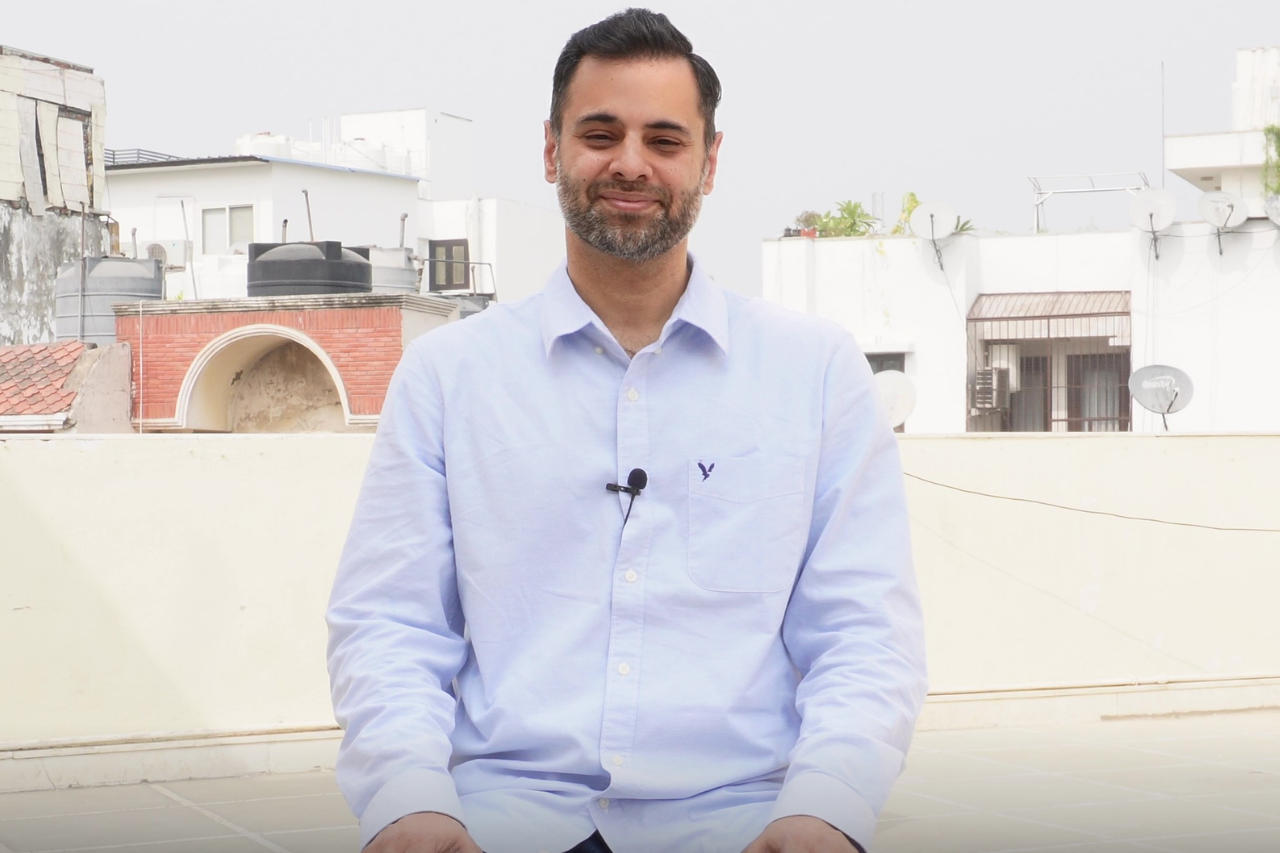Jeevan.: If my real nature is eternal happiness or bliss (sat-chit-ananda), why don’t I experience it all the time? I’ve gone through some hard times during this year, and I’m unable to experience lasting happiness. To me, it seems all this talk of oneness is the mind’s cover-up to avoid feeling discomfort. Can you elaborate on it?
Jagjot.: Let’s understand the word ananda or bliss first. We keep using the word bliss habitually in daily communication. I’ve seen dishes in restaurants named by prefixing bliss before their name to make them more enticing to customers. It works! (laughs).
However, that’s not real bliss or happiness because it is momentary and transient. It exists only when there’s a “you” to experience it. It is conditional. Even the calm experienced during deep meditation is conditional, and hence, temporary.
The word ananda implies impersonal bliss or happiness. It doesn’t depend on an object to arise. In fact, it does not arise. It is always there as the stillness or presence. It is not an experience or state, but the stateless “being.” I often use the word “natural state” to describe it, but honestly, there’s a way to objectify it cause it is the primordial subject.
Any experience is merely a glimpse into the stillness, or what Ramesh Balsekar would call the free sample of the absolute. For an experience to happen, there has to be a seer. For the seen cannot exist without the seer. Bliss is the empty awareness in which all experiences arise, including the fictional entity called “me.”
Dualistic happiness is conditional and is always accompanied by unhappiness. Every pleasure has an accompanying pain. Without pain, you cannot make sense of pleasure. You feel happy when the overthinking mind becomes calm.
Would you be able to appreciate calmness if you never had an overthinking mind in the first place? Therefore, your idea of happiness or bliss is tied up to the personal self, which is a creation of social and environmental conditioning.
Your happiness or unhappiness is relative. Today, you may be unhappy about not having enough money or growth in business, but all of that is relative and conditional. If tomorrow you lose your employment or fall sick, your concerns will change immediately.
The mind continually craves new objects of desire. The objects change, but the desires remain. We mistake fleeting feelings of thrill and excitement for happiness, and we chase them thinking they will make us whole, not knowing we are already the wholeness we seek.
Desires arise from the notion of little “me,” which continually strives to become more significant by fulfilling them. Even the desire to get rid of all desires is a mind’s trick to keep the attention on “me.”
True happiness is a state of desirelessness, not through suppression or repression of the ego, but by “seeing” the desires for what they are, rather than the outcome they promise in the future.
So the idea that this little “me” can achieve eternal happiness is flawed. The “me” is the appearance of the contracted energy in the dream of “ONE.” Oneness is all there is. Oneness is Ananda.
Therefore, trying to grasp and hold onto a state is a cunning ploy of the ego-mind. The ego can’t experience bliss because it is overly identified with concepts, ideas, and beliefs. So when you say that I want liberation or eternal happiness, you are merely creating another bubble or a picture to soothe yourself.
The mind is a trickster. It will convince you that you have achieved freedom, but when circumstances change and are not aligned with your thinking, the ego will sting hard, causing great discomfort, irritation, or unpleasantness.
Impersonal bliss is timeless. It does not arise as a thought or feeling in horizontal time. It is felt as an empty presence. You feel it in deep sleep when the mind is asleep. And now, you long to have that same experience in the waking state.
Is it possible to have the bliss of deep sleep in the waking state? It spontaneously happens with surrender. After wrestling all concepts and beliefs, the intellect gives up, and the ego makes an investigation by questioning its role in what’s happening. It says, “Am I doing all of this? If not, then who’s this ME?”
The surrender is not by the ego but the ego’s sense of “doership” – the claim of ownership over all actions. When this happens, it is the end of spiritual seeking or the “me and my story.” When the story drops, the contracted energy called “me” or the personal self expands into boundless and eternal happiness.
The problem is that we get absorbed in our story and the doership, preventing us from seeing our real nature. The personal self that remains identified with ideas is incapable of experiencing eternal bliss.
The mind has a habit of objectifying every thought. Therefore, words like bliss and happiness become an object of desire for the mind to grasp.
However, the grasping itself causes suffering because it repeatedly reinforces the idea that the personal self has to enhance itself by acquiring something outside of itself.
The personal self is a false psychological construct identified with ideas and is incapable of experiencing unconditional bliss. How do we know? Because the personal self is not present in deep sleep. It isn’t your continuous experience.
The programmed mind hopelessly waits for the appropriate conditions for things to fall in place. The ego waits for the right opportunity to claim ownership. When things work out, it proudly claims to be the owner.
And when they don’t, it finds someone or something to pin the blame. This sense of separation is the root cause of our misery. The actions happen through the mind-body organism, but there’s no individual doer.
Do you notice how we tell ourselves the same stories repeatedly? “I’ll be happy once I get this or that.” In duality, love, happiness, bliss, or any other feeling is always bounded and ephemeral because they’re all based on the imaginary “me and my story.”

